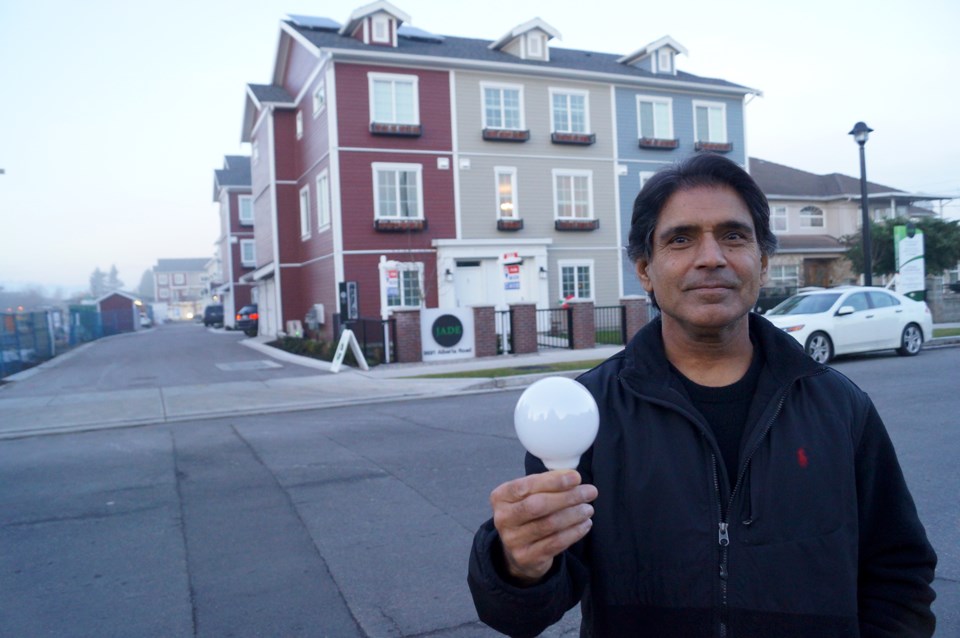You can add home energy efficiency as another additional charge developers in Richmond are concerned about, but are ultimately passing on to new homeowners.
Last year the City of Richmond required new townhomes to be rated EnerGuide 82, as part of the its push to reduce community carbon emissions.
But if such a policy drives up housing costs, it conflicts with another city goal — that of producing affordable market housing.
Coun. Harold Steves said he acknowledges that the new homeowner is stuck financing the energy savings in the short term. However, he said in the medium to long term, the savings will be earned back (based on an assumption conventional energy costs will rise).
“I don’t think there is any market affordable housing in Richmond, so it isn’t going to make much of a difference anyway,” said Steves.
In a report to Richmond City Council last week city planners proposed to allow developers their choice of using EnerGuide standards or building townhomes according to the Energy Star for New Homes standard, which would allow builders to access utility rebates from BC Hydro ($700) and FortisBC (unannounced).
But those rebates likely won’t add up to the initial costs associated with the higher standard of energy efficiency.
Urban Design Institute member and local developer Dana Westermark (Oris) said it costs about $4,000 per unit to meet the EnerGuide 82 rating, including hiring an energy advisor.
Other developers cited costs of up to $10,000 per unit.
Developers have noted that such extra costs for energy efficiency are ultimately accounted for in the overall costs of a development. Other charges include childcare amenity and public art fees.
The city’s change in requirements is said to be a small departure from the city’s existing EnerGuide 82 requirements, according to the report. The ESNH would only accomplish an EnerGuide 81 standard but the difference would be made up for via other factors (such as minimum performances for space heating).
The city claims it will also help developers access rebates for other energy saving initiatives.
EnerGuide is a standardized federal government energy efficiency rating system. The national standard is 80. Most older Richmond homes are rated below 70. An increase of one or two points past 80 is said to be significant. Meanwhile, the City of Vancouver is targeting a rating of 84 for its homes. A 100 rating is a zero energy home.
The City of Richmond wants to reduce its community carbon emissions by 33 per cent below 2007 levels by 2020 but that is only subject to senior government action, which means a number of issues or policies can affect such a goal.
One such policy may be electric solar panel rebates, according to Steves.
"The cost of solar is plummeting, as long as we don't put large tariffs on them (from China). We should be able to bring solar in for the equivalent price of water generated power," said Steves, a member of the provincial NDP.
He said solar panel subsidies would make it easier for developers to reach the city’s EnerGuide 82 goals and save the province power in the long run.
According to the report the City of Richmond is presently examining the use of solar power within the community. As it stands, townhomes must be fitted to be solar hot water panel ready, although those requirements are relatively manageable.



